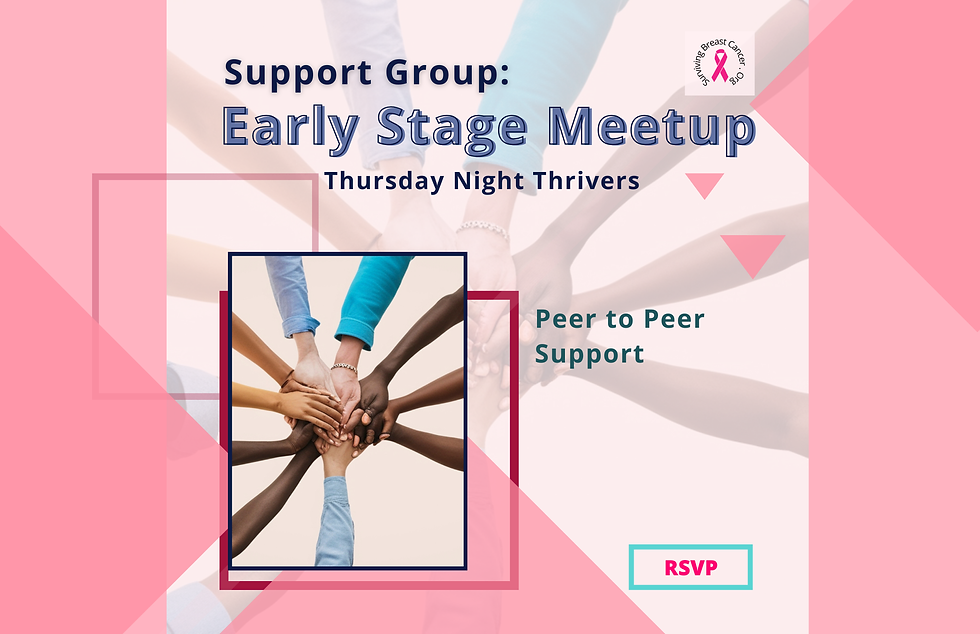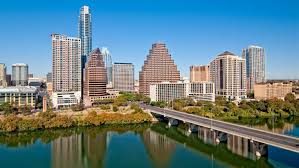Breast Cancer Language: Please Don’t Call It a Journey
- Surviving Breast Cancer

- Aug 7, 2022
- 5 min read
Updated: Aug 12, 2025
By Andrea Berting
Two weeks after my second chemotherapy infusion, I found myself feeling somewhat normal - at least, as close to normal as I would manage during this phase of treatment. I could keep down solid food with some level of nutritional value, my bones barely hurt, and I was mostly functional with only one nap per day. I was unstoppable! A force to be reckoned with! But what should I do with this extremely limited amount of energy?
I realized that my favorite burlesque and variety show here in Chicago - Bad Taste - had a performance on an evening that I felt more or less like a human. Strolling into the theater in my comfiest cardigan, lowest effort makeup, and baldest head, for a moment it almost seemed like I had achieved something resembling my pre-diagnosis existence.
Sure, a few strangers threw some pitying glances my way, but the crowd was mostly made up of friends who were happy to see me there, cancer or no cancer.
After finding a seat, I looked up and happened to make eye contact with an acquaintance who I hadn’t seen in several months. Immediately, she gave me the Sad Eyes™ that I’m sure every cancer patient knows too well. Approaching cautiously, as if I was a precious piece of porcelain that might shatter at any moment, she told me how glad she was to see me - after all, she was “following [my] journey on social media”. Using most of the finite energy reserves I had set aside to get through the evening, I managed to stifle an exasperated sigh and simply gave her a pained smile.
It’s difficult to put into words exactly why calling my illness a “journey” inspires such revulsion in me. So difficult, in fact, that it took me nearly a year after finishing what one might call “active treatment” to even begin writing this post.
In 2010, I took a two-week solo road trip from my then-home in northern Virginia to Austin, Texas and back. It was the first time I ever traveled alone, and it was exhilarating. That was both a literal and figurative journey for me - I visited cities and landmarks I had never seen before, and exposed myself to a variety of landscapes and cultures I wouldn’t have come across otherwise. I came away from that trip with a newfound sense of who I was, and who I wanted to be. Doing something huge like that on my own felt powerful.
In 2012, I quit my job as a high school teacher to pursue a career in theatre. That decision took me halfway across the country to Chicago, and kickstarted a convoluted path that started in part-time retail and brought me exactly where I had hoped to end up. Those feelings of unrest and disappointment, of taking two steps forward and one step back, and ultimately of accomplishment and pride in my work were all critical points along the way of an extremely satisfying journey.
I have taken many “journeys” along these lines - physical trips, emotional challenges, spiritual transformations, blah blah blah. There is nothing about my experience as a cancer patient that I feel remotely resembles any of that.
Overall, I find it extremely off-putting when people feel the need to use flowery language to talk about something as awful as cancer. No, I didn’t “fight like a girl”. I’m not a warrior (ugh), or an inspiration (yuck), or anyone’s sister except for my actual brother's. In my mind, calling cancer treatment a “journey” falls under this umbrella. It’s just another way to make it sound somewhat pleasant or tolerable, even borderline fantastical. Please, please, please, do me a favor and just call this BS what it is - a f***ing awful ordeal that nobody should have to go through.
“But wait,” I hear you saying, “My mom/aunt/best friend/dentist calls their cancer treatment a journey! What about them? Are you saying that they are BAD and WRONG???” You’re right - there are lots of people who refer to having cancer as a journey they’ve taken. And guess what? That’s totally fine! If you’re a person who has had cancer, then you can call it whatever the hell you want and I’m not here to stop you. Plenty of folks find it empowering to use this type of language, and I fully support them. We lose control of a never-ending list of things when we go through treatment, and speaking about it in a way that works for you is important!
So yes, if you hear your grandma refer to her “cancer journey”, then she probably won’t roll her eyes at you if you use that phrase. Listening to the cancer patient in your life, and really paying attention to the way they refer to their experience and treatment themselves, will give you all the clues you need to talk to them in a non-exhausting way. (This works for all kinds of stuff, by the way - nicknames, pronouns, job titles, etc. Paying attention to the way others refer to themselves is a great way to make sure you’re speaking about them respectfully!)
Until you get a chance to observe what language they prefer to use, it can be difficult and scary to reach out to someone dealing with a cancer diagnosis. After all, you don’t want to make them feel worse than they already do!
From my experience, here are some safe things to say that pretty much every cancer patient will appreciate:
“Everything about this is awful and I hate that it’s happening to you.” This kind of statement is empathetic, acknowledges that the person is hurting, and uses straightforward language. Win-win-win!
“Please let me know if I can make you dinner/drive you to an appointment/buy you weed/walk your dog.” It’s tempting to simply leave it at “let me know if you need anything”, but what seems like a flexible offer to you can feel overwhelming to the patient. They very likely have no idea what they’ll need, and won’t reach out to you because they don’t know where to start. Offering specific, concrete things you know you can do will make it more likely that they will take you up on it when those needs arise.
“If you ever need to vent, I’ll listen.” This is a little more open-ended, but I find that it’s a good approach because it doesn’t put pressure on the person with cancer to spill their guts immediately. Personally, I know I felt like a few people expected me to cry on their shoulder on command, and I couldn’t help but wonder if it was because they actually cared about me or because they wanted to feel like a good person for “supporting” me. If you’re open to listening, then YES ABSOLUTELY LET THEM KNOW, but follow up by being ready to talk about non-cancer things until they feel like emotionally unloading.
“I don’t know what to say.” Probably the # 1 most painful thing you can do to your friend or loved one with cancer is to completely disappear. Hearing “I don’t know what to say, but I want you to know that you’re great and I love you” is one billion times better than feeling like you’ve driven someone out of your life by being a scary sick person.
This is by no means a comprehensive list! Everyone is different, so use your best judgement. If you know that your friend has a weird sense of humor, then sure, tell her that her hair loss from chemo is simply the first stage of shedding her mammalian traits so she can transform into a beautiful snake girl. I’m sure she’ll appreciate it.






















